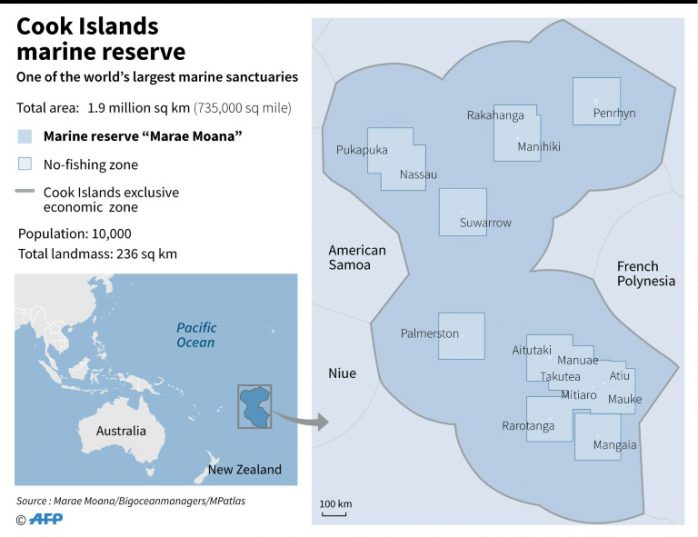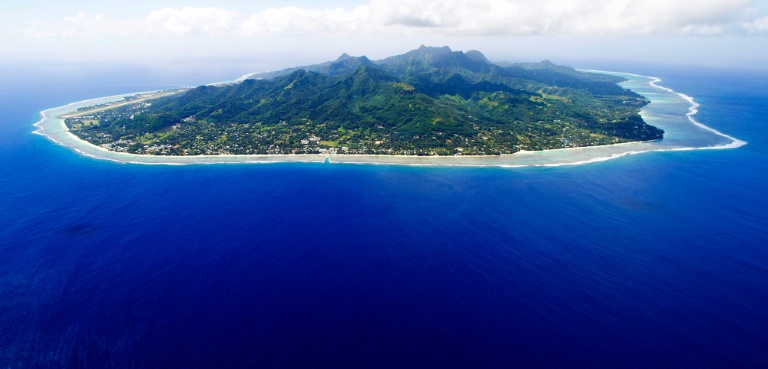The Cook Islands has created one of the world's largest marine sanctuaries, protecting a vast swathe of the Pacific Ocean more than three times the size of France.

Legislation setting up the 1.9 million square kilometre (735,000 square mile) reserve passed through the tiny nation’s parliament late Thursday.
Environmentalist Kevin Iro, who first proposed the idea more than five years ago, said it was a landmark achievement that would help preserve the ocean for future generations.
“It’s a historic time, particularly because everyone supported it, including our traditional leaders who spearheaded the whole thing,” he told AFP.
The Cook Islands has a population of just 10,000 and its 15 islands have a combined landmass of 236 sq km, barely the size of Washington DC.

Map showing the massive marine reserve created by Cook Islands in the Pacific Ocean
But its isolated position in the Pacific, about halfway between New Zealand and Hawaii with no near neighbours, means it has a huge maritime territory.
Iro said Cook Islanders had an affinity with the ocean and viewed it as sacred but overfishing and pollution had damaged the marine environment, including the coral reefs that once ringed all the islands.
He said the marine reserve, known as Marae Moana, would give the environment a chance to heal, allowing the islanders to protect their legacy.
“When I moved back here (from New Zealand) about 16 years ago I saw what was happening to the lagoons and reefs and really wanted to protect them for my kids,” he said.
“I want them to have the same experience I did as a boy growing up.”
The idea is not to ban commercial fishing or mineral exploration outright, but to ensure it is carried out in a sustainable manner.
However, there will be a core no-fishing zone totalling about 320,000 sq km, extending 50 nautical miles from the coastline of each island.

Aerial photo taken on August 30, 2012 shows the island of Rarotonga, the largest in the Cook Islands
Prime Minister Henry Puna said Marae Moana provided a blueprint for managing ocean environments worldwide.
“Together we had a vision to turn our little country into the cleanest and greenest tourism destination in the whole wide world,” the Cook Islands News quoted him as telling parliament.
“We not only recognise that the ocean brings us revenue in terms of fishery and tourism and potentially sea bed minerals -– it also provides us with clean air, clean water, and clean food to nourish and sustain us.”
Puna’s office did not immediately respond to a request for comment.
Support Local Journalism
Add The Citizen as a Preferred Source on Google and follow us on Google News to see more of our trusted reporting in Google News and Top Stories.






